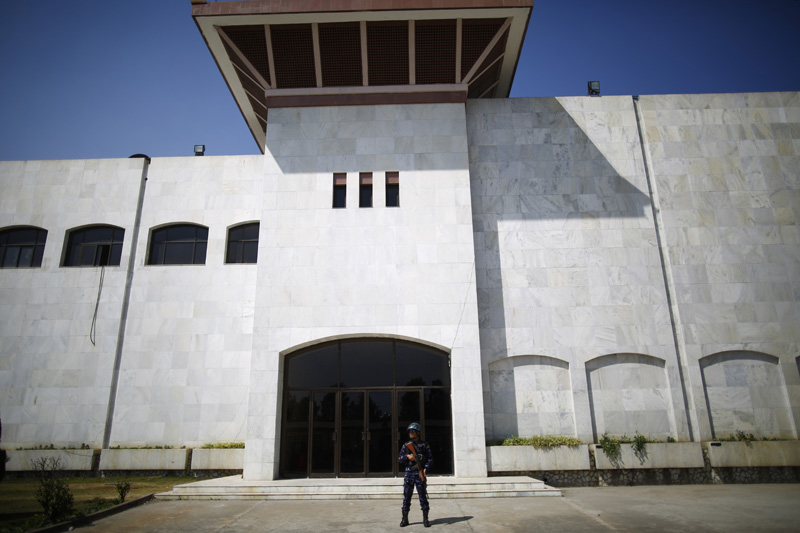Parliamentary panel passes citizenship bill
KATHMANDU, JUNE 21
The State Affairs and Good Governance Committee today passed the constitution (amendment) bill proposing to grant naturalised citizenship to foreign women married to Nepali men only after seven years. The parliamentary panel passed the bill on the basis of majority. The bill was opposed by the Nepali Congress and the Janata Samajwadi Party-Nepal.
Nepali Congress lawmakers Devendra Raj Kandel, Amresh Kumar Singh, Dilendra Prasad Badu, Dila Sangraula Panta, Meena Pandey and Binod Chaudhary wrote a note of dissent against majority members’ decision, saying that the ruling party’s proposal to make foreign wives of Nepali men wait for seven years to obtain naturalised citizenship was in violation of the current constitution.
The interim constitution had stipulated that naturalised citizenship be issued pursuant to prevailing laws and in place of that there is the phrase ‘pursuant to federal law’ in the new constitution.
NC lawmakers said that the ‘mention of pursuant to federal law’ did not alter substantial meaning of the words in the constitution.
They said the provision to grant naturalised citizenship to foreign women married to Nepali men immediately after marriage was retained in the Interim Constitution of Nepal-2007 as all parties had agreed on the issue. NC lawmakers said the new constitution retained the same provision of the interim constitution after political parties that debated the issue during enactment of the new constitution agreed to retain the Interim Constitution’s provisions.
NC lawmakers said the ruling party’s proposal to force foreign women married to Nepali men to wait for seven years to obtain naturalised citizenship could create constitutional, social and familial complexities. They also said the ruling party’s proposal was against political, social and cultural norms. “NC demands that provisions of Citizenship Act- 2007 related to naturalised citizenship on the basis of matrimonial relations be retained as that act was enacted on the basis of political consensus.
Since JSP-N is yet to be officially recognised by the Election Commission, panel members Rajendra Mahato and Raj Kishor Yadav of Rastriya Janata Party Nepal and Rajendra Shrestha and Raj Kishor Yadav of the Samajwadi Party-Nepal wrote a note of dissent against the majority members’ decision. RJP-N and SP-N had merged in April to create JSP-N. They said majority members’ proposal to grant matrimonial naturalisation only after seven years was unconstitutional as there was no such condition in the new constitution. They added that the provision of the interim constitution that allowed foreign women married to Nepali men to obtain naturalised citizenship immediately after marriage was a consensus decision and that should be retained. They said the seven-year waiting period was against political, social and cultural norms.
Co-chair of JSP-N Mahantha Thakur issued a press release as a leader of Rastriya Janata Party-Nepal saying if the provision was enacted into law, it could deprive foreign wives of Nepali men of economic opportunities and property rights and could also adversely impact cultural ties between Nepal and India. “This proposal will adversely affect ties of kinship that exist between Nepal and India and millions of people could be affected by this,” Thakur said in his release.
Spokesperson for the Parliament Secretariat Rojnath Pandey said the bill was ready to be tabled in the House. “The bill may be tabled in the next meeting of the HoR scheduled for Tuesday. If the speaker wants, it could be put to vote soon,” he said.
A version of this article appears in e-paper on June 22, 2020, of The Himalayan Times.






